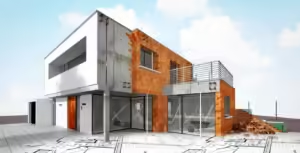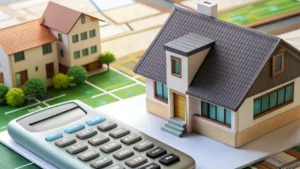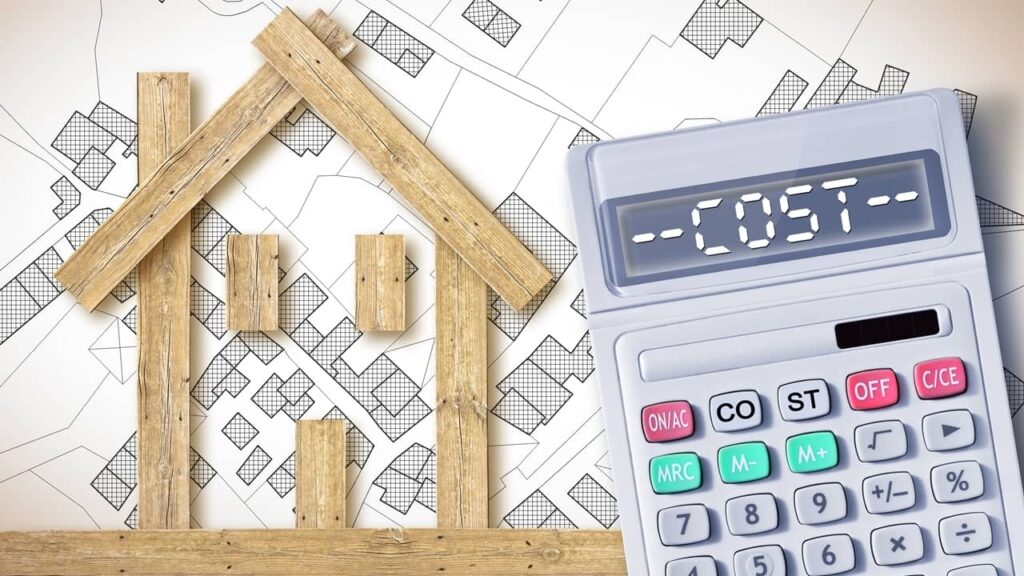Residential construction cost is an important topic for anyone planning to build or renovate their home. Knowing the costs helps you plan your budget better and avoid surprises. When you understand residential construction cost, you can make smart choices about your project.
There are many factors that affect residential construction cost. These include the size of your home, the materials you choose, and the labor needed for the job. In this blog post, we will explore what makes up residential construction costs and how you can save money while building your dream home.
What is Residential Construction Cost
Residential construction cost refers to the total amount of money needed to build or renovate a home. This includes everything from materials like wood and nails to labor costs for workers. Knowing this helps you understand how much money you need for your project.
When you think about building a house, it’s important to plan your budget well. This means knowing what things will cost before you start. It helps you avoid running out of money halfway through your project. Understanding residential construction cost gives you a clearer picture of what to expect.
Costs can vary a lot depending on many factors. For example, a small house will cost less than a big one. Also, using expensive materials will raise the total cost. Knowing the basics of residential construction costs will help you make better choices.
Factors That Affect Residential Construction Cost
Many things can change the cost of building a home. One big factor is the size of the house. Bigger houses need more materials and more workers, which can make costs go up. Understanding this can help you decide what size home is best for you.
Another factor is the location of your building site. If you live in a city, the land and labor might be more expensive. In contrast, building in a rural area could save you money. Knowing about location can help you plan your budget better.
The materials you choose also play a big role. For example, using high-quality wood or stone can make your home look beautiful but can also increase costs. Finding the right balance between quality and price is important to keep your residential construction cost in check.
Understanding Labor Costs in Residential Construction

Labor costs are another important part of residential construction cost. This refers to the money you pay workers for their time and effort. Skilled workers, like carpenters and electricians, might charge more than general laborers. Understanding these costs can help you budget better.
You will need different types of workers for different tasks. For example, someone will need to lay the foundation, while another will install the roof. Knowing who you need and their rates can help you plan your budget. It’s smart to get quotes from different contractors before making a decision.
Also, consider how long the job will take. If it takes longer, it will cost more in labor. Planning your project carefully can help keep costs down and ensure that everything is completed on time.
Choosing the Right Materials to Manage Residential Construction Cost
Selecting the right materials is key to managing your residential construction cost. Different materials have different price tags. For example, using plywood instead of solid wood can save money without losing quality. Learning about materials can help you make smart choices.
Sometimes, it’s tempting to choose the cheapest materials. However, this can lead to problems later, like repairs or replacements. It’s better to invest a little more in materials that will last. This way, you will save money in the long run.
You can also look for discounts or sales on materials. Many stores have sales throughout the year. By shopping wisely, you can find good quality materials at lower prices. This helps keep your residential construction cost manageable while still getting what you need.
How to Create a Budget for Residential Construction Cost

Creating a budget is a very important step in managing residential construction cost. Start by listing all the items you will need. Include materials, labor, permits, and any extra costs. Writing everything down helps you see the big picture.
Once you have your list, estimate how much each item will cost. Research prices online or visit local stores to get accurate numbers. This will give you a more realistic budget to work with. Remember to include a little extra money for unexpected expenses.
Finally, keep track of your spending as you go. If you see you are going over budget, you might need to make adjustments. Being careful with your budget can help you complete your project without financial stress.
Tips for Reducing Residential Construction Cost
Finding ways to reduce your residential construction cost can save you money. One simple tip is to plan everything ahead of time. When you have a clear plan, you can avoid mistakes that can lead to extra costs. Being organized is key.
Another way to save money is to do some work yourself. If you have skills in painting or landscaping, consider taking on those tasks. This can help reduce labor costs significantly. However, make sure you are confident in your abilities to avoid mistakes.
Shopping around for materials and labor is also smart. Get quotes from different suppliers and contractors. Comparing prices can help you find the best deals. Remember, every little bit saved can add up to big savings on your residential construction cost.
The Importance of Planning in Residential Construction Cost
Planning is essential when it comes to managing residential construction cost. A good plan helps you see what you need and how much it will cost. It prevents surprises and makes sure you are ready for each step of the project.
Start by setting clear goals for your project. Know what you want your home to look like and what features you need. This will help you stay focused and avoid spending money on things you don’t need. A solid plan keeps you on track.
You should also create a timeline for your project. Knowing when tasks need to be done helps keep everything organized. It also allows you to plan for any delays that might happen. Effective planning is the backbone of keeping your residential construction cost under control.
Common Mistakes That Increase Residential Construction Cost

Many people make mistakes that can increase their residential construction cost. One common mistake is not having a clear budget. Without a budget, it’s easy to spend more than you planned. Make sure to outline all costs before you start.
Another mistake is not researching materials and labor. Sometimes, people choose the first option they see, which can be expensive. Taking the time to compare prices can save a lot of money. Always look for the best deals to keep costs low.
Finally, not communicating well with contractors can lead to misunderstandings. If your contractor doesn’t know what you want, it could result in costly mistakes. Keep the lines of communication open, and ensure everyone is on the same page to avoid issues.
How to Find Reliable Contractors for Residential Construction Cost
Finding reliable contractors is crucial for managing residential construction cost. Start by asking friends and family for recommendations. They may know trustworthy contractors who have done good work. This can save you time and help you find the right person for the job.
Next, do some research online. Websites like Angie’s List or HomeAdvisor provide reviews of contractors. Reading what other customers say can help you make a good choice. Look for contractors with high ratings and positive feedback.
Once you have a list of potential contractors, set up interviews. Ask about their experience and get quotes for your project. This will help you compare options. Choosing the right contractor can save you money and ensure your project goes smoothly.

